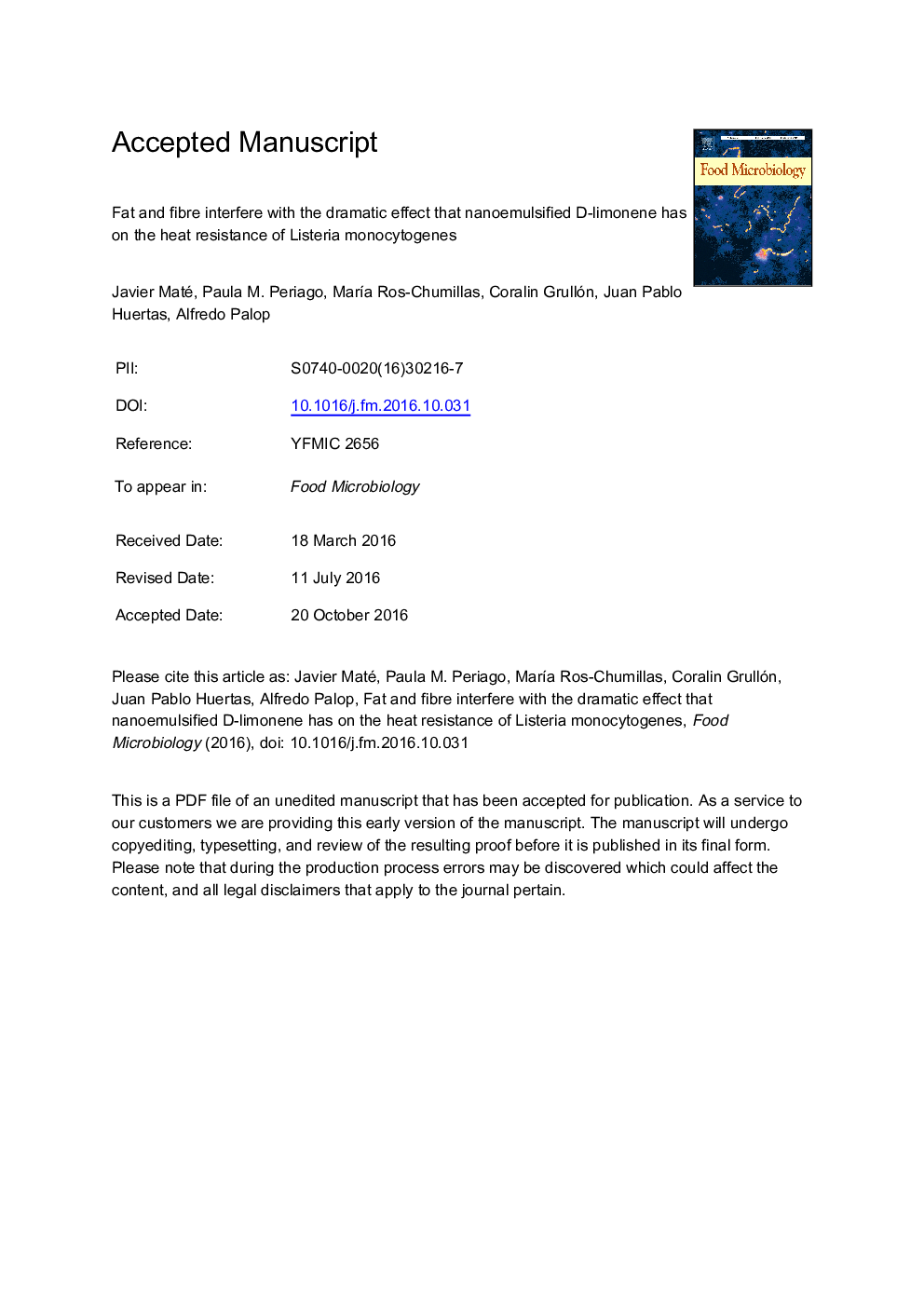| Article ID | Journal | Published Year | Pages | File Type |
|---|---|---|---|---|
| 8843656 | Food Microbiology | 2017 | 42 Pages |
Abstract
The application of d-limonene in form of nanoemulsion has been proved to reduce dramatically the thermal resistance of Listeria monocytogenes in culture media. The present research shows very promising results on the application in food products. The thermal resistance of L. monocytogenes was reduced 90 times when 0.5 mM nanoemulsified d-limonene was added to apple juice. This is the biggest reduction in the heat resistance of a microorganism caused by an antimicrobial described ever. However, no effect was found in carrot juice. A carrot juice system was prepared in an attempt to unravel which juice constituents were responsible for the lack of effect. When fat and fibre were not included in the carrot juice system formulation, the thermal resistance of L. monocytogenes was, again, dramatically reduced in presence of nanoemulsified d-limonene, so these components were shown to interfere with the effect. Once this interaction with food constituents becomes solved, the addition of nanoemulsified antimicrobials would allow to reduce greatly the intensity of the thermal treatments currently applied in the food processing industry.
Keywords
Related Topics
Life Sciences
Agricultural and Biological Sciences
Food Science
Authors
Javier Maté, Paula M. Periago, MarÃa Ros-Chumillas, Coralin Grullón, Juan Pablo Huertas, Alfredo Palop,
